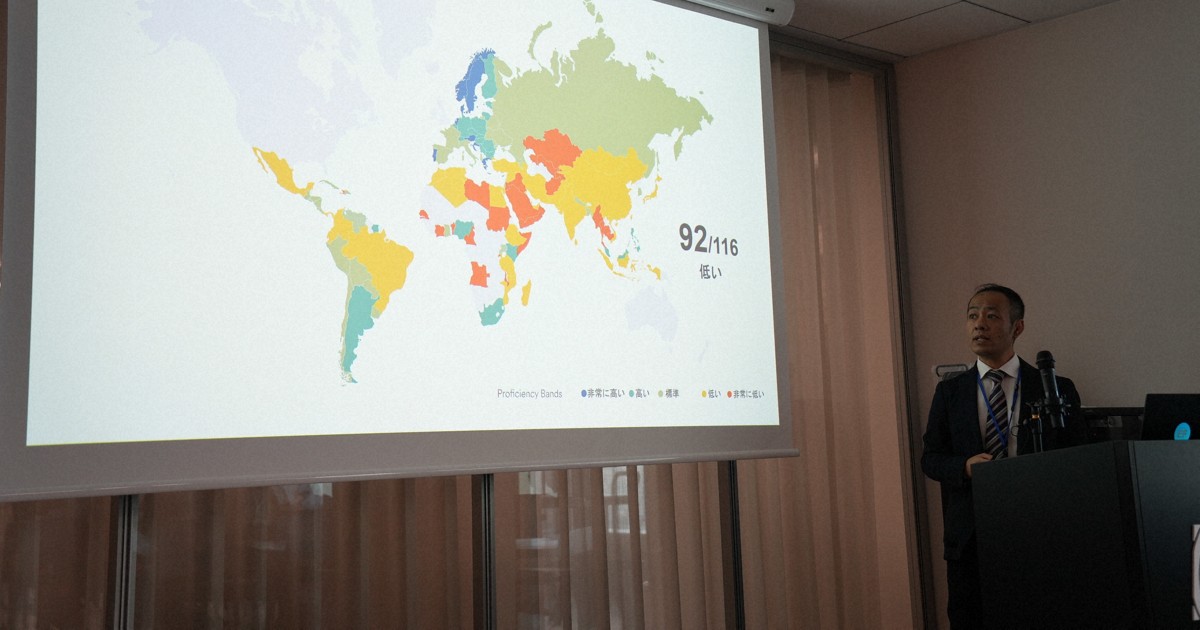Summary
Japan’s English proficiency ranking dropped to 92nd out of 116 countries, the lowest ever recorded.
The decline is attributed to stagnant English proficiency among young people, particularly due to the COVID-19 pandemic.
The Netherlands ranked first, followed by European countries, while the Philippines and Malaysia ranked 22nd and 26th, respectively.



Is what you’d think, but nope. Their r, sh, j, ch and w and u sounds are slightly different from English (enough so that some languages have the English version and the Japanese version as independent sounds), the lone n consonant has a pronunciation not existent in English, and Japanese has a tone system but it’s simple enough a foreigner can get by without knowing it. That is to say, Japanese pronunciation is very different from English and decently hard to master, but if you just pronounce it like you would English (without stress of course, absolutely don’t add stress) you shouldn’t have a problem getting your point across.
Wait Arabic consonant clusters? If anything Arabic has less consonant clusters than English. As a native Arabic speaker what I would think is a problem for English natives is the consonants themselves, because we have a lot of them and many don’t exist in English.
Thanks for confirming. I don’t speak Japanese but my sister studied it for a few years, and according to her, teachers were always impressed with her perfect pronunciation. We’re both native Spanish speakers in an English speaking country. From what I gather, Japanese phonology has more in common with Spanish or Italian than with English.